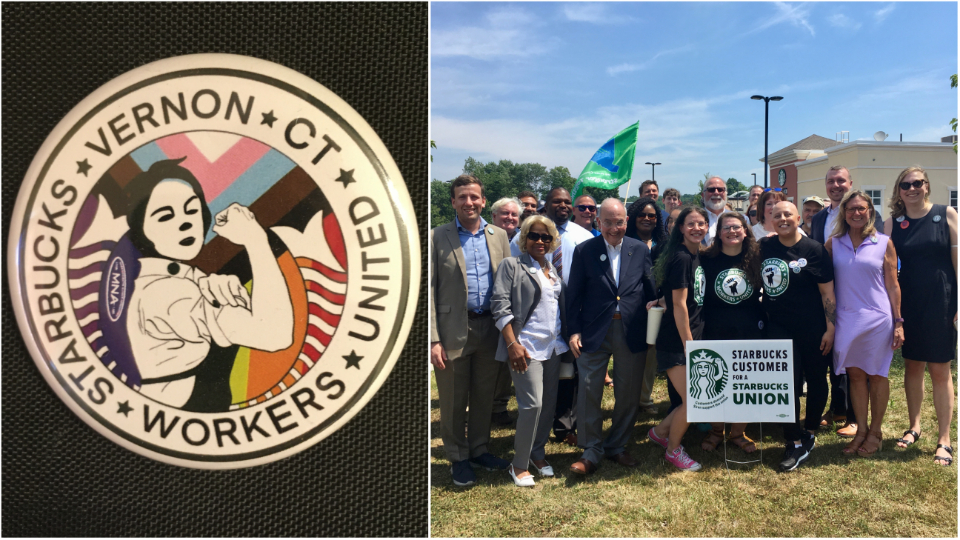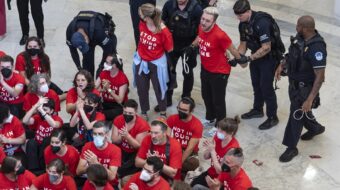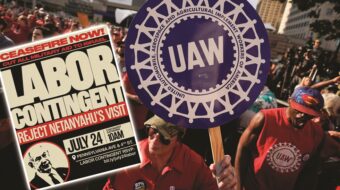
VERNON, Conn.—Baristas at the Starbucks in Vernon won their union election 13-1 on July 14, two weeks after a new law went into effect in Connecticut preventing employers from disciplining employees who refuse to sit through mandatory anti-union meetings.
Connecticut labor leaders had fought to ban “captive audience” meetings for more than a decade. A bill was first introduced in 2005, but each year management groups lobbied against it.
This time the bill passed on an 88 to 56 vote, generally along party lines. Eight Democrats joined all but one Republican in voting against it. Rep. Tom Delnicki of South Windsor cast the lone Republican vote in favor.
Connecticut is now one of only two states with laws protecting workers from being forced to listen to anti-union speeches. Oregon is the other.
The new law, “An Act Protecting Employee Freedom of Speech and Conscience,” also prevents employers from requiring employees to remain at meetings where they impart political or religious views.
On July 1, a group of Starbucks workers, union supporters, and state legislators celebrated the new law at a press conference at the Starbucks in Vernon.
When they voted yes for the union, these workers became the second Starbucks to organize in the state. The first workers to organize, earlier this year, work at the Corbin’s Corner Starbucks in West Hartford. They are organizing with the union Workers United.
The workers cite low pay, lack of affordable health benefits, and pressure to come in to work sick as some of their top motivations. On top of these issues, the workers say they’ve taken off the job at peak times to listen to anti-union arguments. As of July 1st, the workers no longer need to remain at these anti-union meetings.
“Enough is enough,” Salwa Mogaddedi, a barista at the Vernon location, said. “Frankly, we are tired of the intimidation and the lies against our unionizing efforts, lies that have unfolded during captive audience meetings, which many of us were forced to endure under fear of discipline.”
Mogaddedi thanked Connecticut labor lobbyists for their support, saying the law is “an important first step in the right direction resolving the policies that make it difficult for workers to organize in the first place, as there is a constant fear of being penalized just for wanting a voice in our work environment.”
“We hope the passing of this bill gives confidence to other workers who are seeking to gain concessions from the goliaths of industry. If we regular working class people can take on one of the most impermeable companies and win, then workers everywhere can win as well,” she said.
“We stand in solidarity with Starbucks workers everywhere. We will not back down. We will not allow ourselves to be intimidated any longer and we will continue to fight for better standards. Labor is entitled to all it creates. All power to the working class,” Mogaddedi concluded.
Sen. Gary Winfield, chair of the Judiciary Committee, said the law has “given a little bit of relief to workers and I hope we continue in this vein.”
Winfield, Rep. Stephen Stafstrom (Judiciary co-chair), and Attorney General William Tong all received Workers’ Voice awards during the Connecticut AFL-CIO convention in June for their leadership in getting the bill passed.












Comments